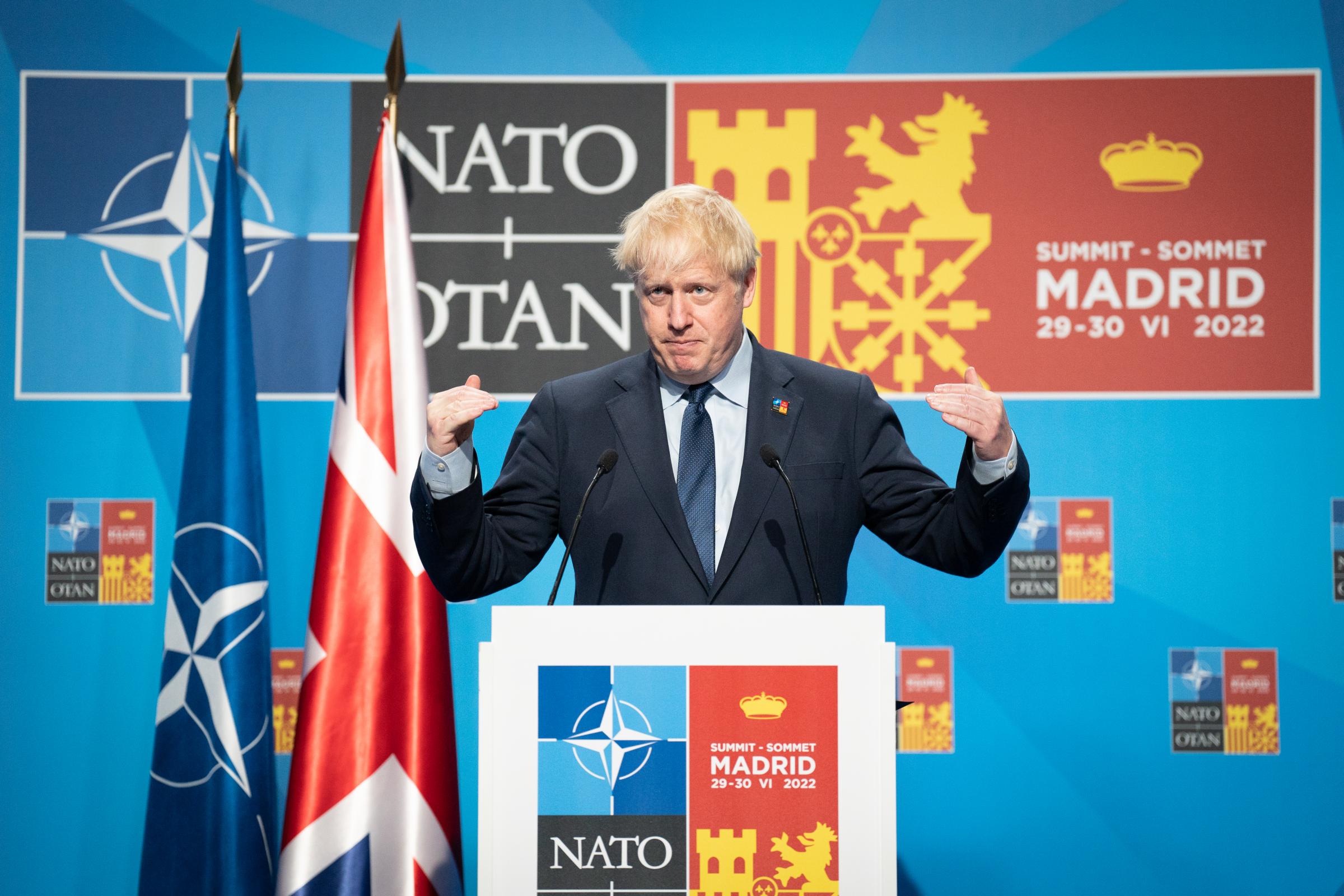
BORIS Johnson has been criticised for increasing the UK's military budget by a whopping £55 billion during a cost of living crisis.
Scottish Green MSP Ross Greer told The National the big rise in defence spending could have a "transformative" impact on the country if used elsewhere.
The Scottish Green’s external affairs spokesperson suggested the extra funding proved money could be found for issues where there is political will to do so.
Johnson promised a further £55bn in defence spending over the rest of the decade in response to the threat posed by Vladimir Putin’s Russia.
The Prime Minister committed Britain to increasing defence spending to 2.5% of gross domestic product (GDP) – a measure of the size of the economy – by the end of the decade and encouraged Nato allies to boost their own military budgets.
Johnson pledged the rise on Thursday after public lobbying from Cabinet ministers Ben Wallace and Liz Truss.
It is understood the pledge could amount to an extra £55.1 billion cumulatively over the rest of the decade in order to reach the 2.5% goal in 2030, based on Office for Budget Responsibility forecasts of the size of the economy.
While some Tory MPs, such as Tobias Ellwood, have attacked the figure for not being enough, the Scottish Greens criticised the number in light of the cost of living crisis.
MSP Greer said the money could be better spent elsewhere.
He told The National: "We are in the worst cost of living crisis for decades. Energy bills are skyrocketing, inflation is soaring and millions of households are struggling.
"Boris Johnson and his colleagues at Westminster insist that there isn't enough money to reverse the punishing universal credit cut they introduced, or to pay rail workers a fair wage, but they have no problem finding billions of pounds for extra military spending."
The Glasgow MSP said it is essential the economy is rebuilt to one that focuses on lifting people out of poverty and providing the sustainable jobs and industries that will help Scotland to tackle the climate crisis.
He went on: “If the priority is security, then reversing the cuts to Britain's international development budget would be far more valuable."
"Whether it's the £55 billion worth of extra funding that Downing Street has given to the military or the £200 billion-plus it has already committed to renewing its nuclear arsenal, that money could have a transformative impact elsewhere.
"It could provide vital funding for our communities and the services that we all rely on, and could be instrumental in building the fairer, greener future that we so badly need."
Speaking as the Nato summit in Madrid drew to a close, Johnson said: “We need to invest for the long term in vital capabilities like future combat air whilst simultaneously adapting to a more dangerous and more competitive world.
“The logical conclusion of the investments on which we propose to embark, these decisions, is that we’ll reach 2.5% of GDP on defence by the end of the decade.”
Defence Secretary Wallace, who was at the centre of a Cabinet spending row over his high-profile campaign for more cash, was said to be grateful for the announcement.
A source close to the minister said: “The Defence Secretary has always been clear that, as the threat changes, so should defence spending.
“In 2020 the Prime Minister reversed decades of under-investment in defence and he rightly responded to Russia’s danger by continuing to invest in defence, for which the Defence Secretary is very grateful.”







